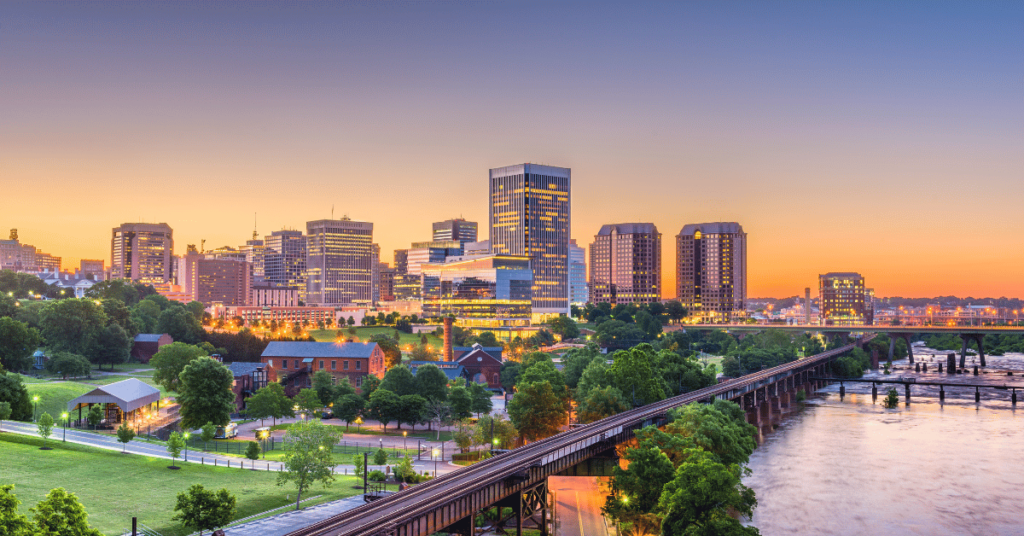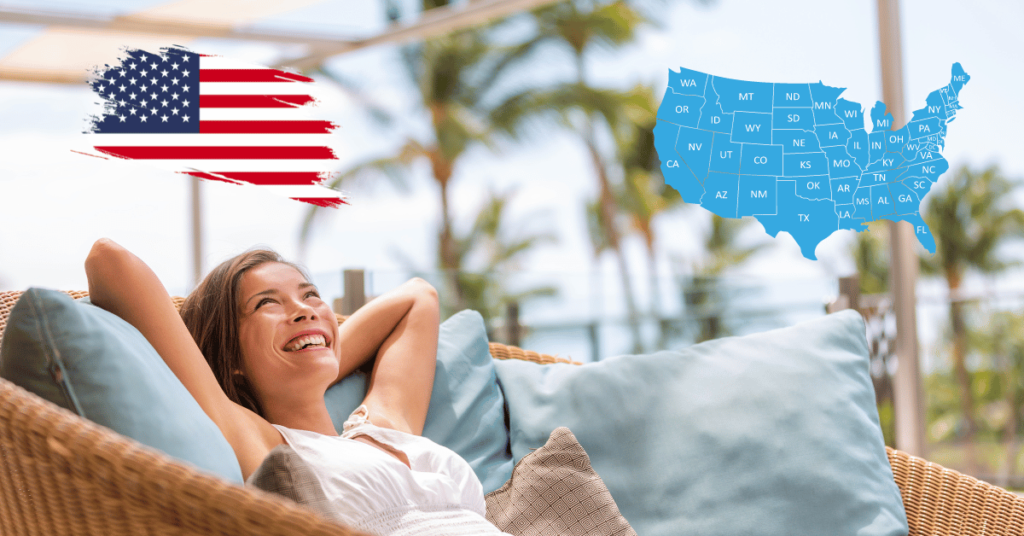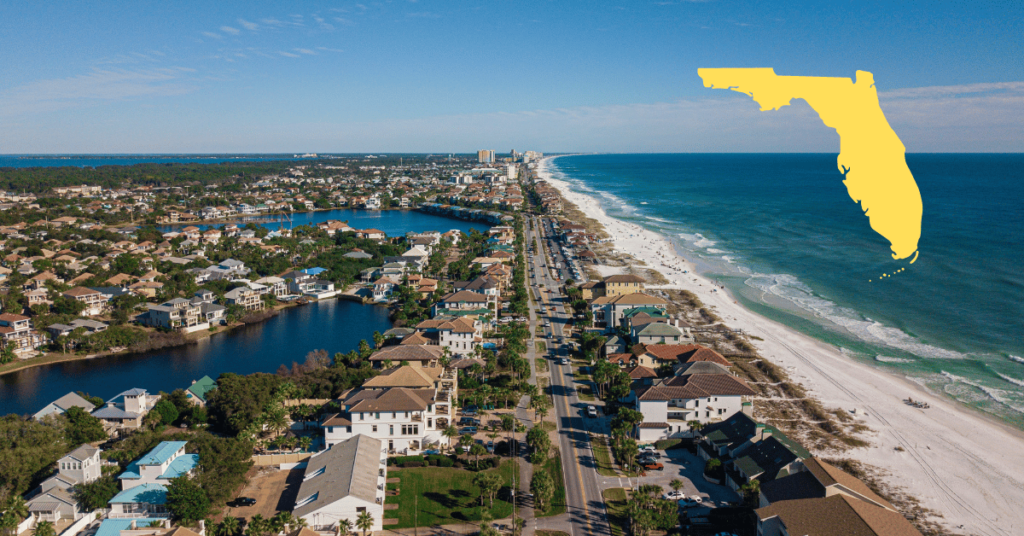Virginia is a popular state for retirees due to its balance of historical charm, natural beauty, and diverse living options. It offers a moderate cost of living and various benefits that cater to both traditional and non-traditional retirees.
This guide will explore the factors that make Virginia an attractive retirement destination, focusing on its cost of living, lifestyle opportunities, and other considerations for retirees.
Cost of Living in Virginia

Housing Costs
One of the most significant expenses in retirement is housing. In Virginia, housing costs can vary widely depending on the region:
- Northern Virginia: Close to Washington, D.C., this area tends to have higher housing prices. While it offers excellent amenities and proximity to the nation’s capital, retirees on a budget may find the cost of homes and rentals higher than in other parts of the state.
- Central and Southern Virginia: These regions, including cities like Richmond and Roanoke, offer more affordable housing options. Small towns and rural areas often have lower housing costs, making them ideal for retirees seeking budget-friendly living.
- Coastal Virginia: Cities such as Virginia Beach and Norfolk can offer a mid-range housing market. The appeal of coastal living might come at a premium, but there are still affordable neighborhoods for retirees looking to live near the ocean.
Tax Considerations
Virginia offers several tax advantages that make it attractive for retirees:
- Income Tax: Virginia does not tax Social Security benefits, which is a major perk for retirees. However, other retirement income, such as pensions and 401(k) withdrawals, may be subject to state income tax.
- Property Taxes: Virginia’s property taxes are relatively low compared to national averages, which can help retirees keep their housing expenses manageable.
- Sales Tax: The state has a combined state and local sales tax rate of around 5.3%, which is lower than many neighboring states.
Healthcare Costs
Virginia offers excellent healthcare services, with well-regarded hospitals and specialists throughout the state. The cost of healthcare in Virginia is in line with the national average, but it may be slightly higher in more urban areas. Retirees should factor in healthcare insurance, Medicare premiums, and out-of-pocket expenses when planning their budget.
Lifestyle Benefits for Retirees in Virginia

Climate and Outdoor Activities
Virginia’s climate is a significant draw for retirees who enjoy four distinct seasons:
- Mild Winters: While Northern Virginia and the mountainous regions can experience cold winters, the coastal areas tend to have milder winters, which is appealing to those who prefer to avoid harsh weather.
- Beautiful Scenery: Virginia is known for its scenic beauty, with access to the Blue Ridge Mountains, Shenandoah National Park, and the Atlantic coastline. Outdoor enthusiasts will find ample opportunities for hiking, fishing, and boating.
Cultural and Recreational Opportunities
Virginia has a rich history and culture, making it a vibrant state for retirees:
- Historic Sites: Retirees can explore numerous historic landmarks, such as Colonial Williamsburg, Monticello, and Mount Vernon.
- Cultural Events: Cities like Richmond, Charlottesville, and Alexandria offer art galleries, theaters, museums, and live performances year-round.
- Recreational Facilities: Many retirement communities in Virginia come with a host of amenities, including golf courses, swimming pools, and fitness centers. These communities often cater to active retirees who want to stay socially engaged.
Proximity to Major Cities
Virginia’s location is advantageous for those who want to remain close to major metropolitan areas:
- Washington, D.C.: Retirees living in Northern Virginia have easy access to the nation’s capital, with its museums, restaurants, and cultural events. This proximity is especially appealing for retirees who want to stay connected to a bustling city while living in a quieter suburban or rural area.
- Easy Travel: Virginia’s location makes it convenient for travel up and down the East Coast. Major airports like Washington Dulles International Airport and Richmond International Airport provide easy access for those who want to travel in retirement.
Best Places to Retire in Virginia

Charlottesville
Known for its vibrant arts scene and historical significance, Charlottesville offers a blend of culture and small-town charm. The city is home to the University of Virginia, which provides educational and recreational opportunities for retirees.
Williamsburg
Williamsburg is a perfect destination for retirees who enjoy history and culture. The city offers numerous amenities, from golf courses to museums, while still maintaining a relatively affordable cost of living.
Virginia Beach
For those who love coastal living, Virginia Beach offers miles of shoreline, a moderate climate, and plenty of recreational activities. The city also has a range of housing options, from affordable condos to luxurious beachfront homes.
Roanoke
Roanoke offers a lower cost of living compared to other Virginia cities, with access to the Blue Ridge Mountains. It’s an ideal location for retirees who enjoy outdoor activities such as hiking and biking.
Conclusion
Retiring in Virginia offers a unique blend of affordability, cultural richness, and access to natural beauty. Whether you prefer the mountains, the coast, or somewhere in between, Virginia has something for everyone. With its mild climate, low taxes, and vibrant lifestyle, it’s no surprise that many non-traditional retirees are choosing Virginia as their ideal retirement destination.
If you have any further questions feel free to comment down below or contact retiresmart for any help!
FAQs
Is Virginia a tax-friendly state for retirees?
Yes, Virginia does not tax Social Security benefits, and it offers relatively low property taxes. However, other retirement income may be subject to state income tax.
What are the most affordable places to retire in Virginia?
Roanoke and Southern Virginia offer more affordable housing options compared to Northern Virginia and coastal cities like Virginia Beach.
Does Virginia have good healthcare for retirees?
Yes, Virginia has a strong healthcare system, with many top-rated hospitals and specialists. Healthcare costs are comparable to national averages.
What outdoor activities can retirees enjoy in Virginia?
Virginia offers a wide range of outdoor activities, including hiking, fishing, and boating in places like Shenandoah National Park, the Blue Ridge Mountains, and the Atlantic coastline.
What are the best cities in Virginia for retirees?
Popular cities for retirees include Charlottesville, Williamsburg, Virginia Beach, and Roanoke, each offering different lifestyle benefits and amenities.




